
Working with creative, empowered people offers a host of inspirational and profit-enhancing benefits, if you can handle the challenges involved. The stakes are especially high in innovative fields. When neglectful or heavy-handed managers alienate gifted staff members—the ones who can really help a company, nonprofit, or community organization shine—confident, talented employees might do something more infuriating than just quit, they might become the competition: These days, anyone with a great idea can raise money online, order supplies delivered to the door, and conceive a multi-million-dollar corporation in the corner of a basement or garage. Now, more than ever, businesses need sophisticated leadership skills to enlist intelligent, inventive people in the race to the top of any field.
Power Struggles
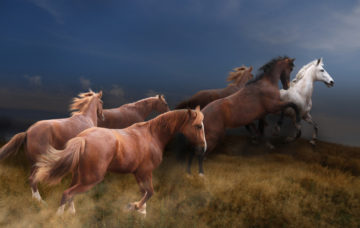
Managing a group of star performers is a lot like wrangling a herd of feisty racehorses. When well fed and expertly conditioned, they’re worth millions. But these sometimes aggressive, sometimes flighty animals don’t necessarily get along with each other. And if they don’t like the trainer, they might kick out, or leap over the gate and head for the hills.
Luckily, a template for handling this dilemma already exists. In researching the history of leadership in multiple cultures, I found that nomadic pastoralists—tribes that migrate with large animals—employ a socially intelligent form of herd management that allows interspecies communities to move across vast landscapes. These people have to deal with predators and changing climates, protecting and nurturing the group while keeping massive, gregarious, sometimes aggressive horses and cattle together—without the benefit of fences and with very little reliance on restraints.
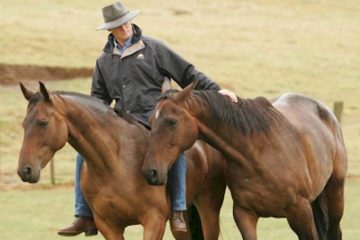 To achieve this complex goal, the phenomenon of the “master herder” emerges. I use this term to describe a strong, compassionate, well-balanced leader who also acts as a caretaker and guardian. Such a person has to master five roles of power and social influence, using them fluidly, interchangeably, as needed. These roles are the Leader, Dominant, Nurturer/Companion, Sentinel, and Predator. In expertly juggling these skills, managers of large animals deftly moderate power plays, nurture individual talents, and keep the group together during droughts and wars as well as during times of peace and prosperity.
To achieve this complex goal, the phenomenon of the “master herder” emerges. I use this term to describe a strong, compassionate, well-balanced leader who also acts as a caretaker and guardian. Such a person has to master five roles of power and social influence, using them fluidly, interchangeably, as needed. These roles are the Leader, Dominant, Nurturer/Companion, Sentinel, and Predator. In expertly juggling these skills, managers of large animals deftly moderate power plays, nurture individual talents, and keep the group together during droughts and wars as well as during times of peace and prosperity.
Balance is Key
Even among citified humans, the average adult is already good at wielding more than one of these roles. But the idea of each individual developing all five roles is counterintuitive to our way of life. Sedentary cultures encourage children and adults to overemphasize competition and specialize in technical areas of expertise, at the expense of developing the mutually supportive, socially adept leadership skills that nomadic tribes learn quite naturally. As a result, “civilized” people have lost the ability to notice, let alone handle, instinctual group dynamics that herders manage as effortlessly as an accountant reads a spreadsheet.
In our technologically-driven society, for instance, few people—even accomplished equestrians—realize that in herds of freely roaming herbivores, the Leader and the Dominant are often two different animals, that they perform specific functions essential to the group’s well being, and that the other roles I mentioned also contribute to the healthy functioning of the social system, even when humans are not involved.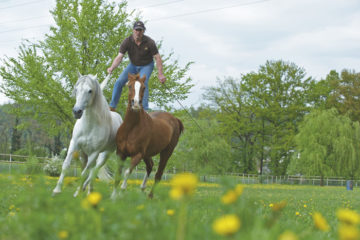
Still, most animals, people included, are drawn toward a couple of roles, while avoiding or outright rejecting the others. This tendency not only keeps everyone in a state of arrested development, it wreaks havoc in challenging situations—unless the organization is managed by an exceptional leader who, like a master herder in a traditional pastoral culture, is capable of employing the various roles as tools, rather than identifying with one or two. When teams of talented individuals learn to wield all five roles, ambitious goals are achieved with uncommon grace through a fluid combination of trust, cooperation, assertiveness, balance, and uncanny levels of coordination.
Light and Shadow
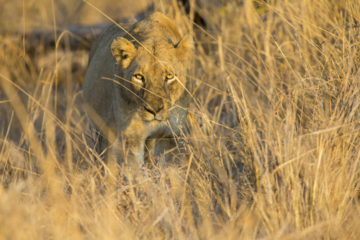 The simple, eternally irritating truth of the matter is that each role has a shadow side that results in dysfunctional behavior when it is overemphasized. People who over-identify with the Predator role, for instance, compulsively use others’ vulnerabilities against them for personal gain. Staff members can’t admit skill deficiencies or ask for help because of the Predator’s inclination to degrade, fire, or take advantage someone who may simply need additional training to excel. On the upside, people talented in the Predator role can make tough decisions during lean times. As in nature, they keep life in balance with the available resources. Those who overemphasize this role, however, cultivate a more extreme “survival of the fittest, kill or be killed attitude.” At the very worst, they prey on co-workers and the company to achieve self-serving goals, and they can really be quite sneaky about it, like a lion stalking a zebra in high grass.
The simple, eternally irritating truth of the matter is that each role has a shadow side that results in dysfunctional behavior when it is overemphasized. People who over-identify with the Predator role, for instance, compulsively use others’ vulnerabilities against them for personal gain. Staff members can’t admit skill deficiencies or ask for help because of the Predator’s inclination to degrade, fire, or take advantage someone who may simply need additional training to excel. On the upside, people talented in the Predator role can make tough decisions during lean times. As in nature, they keep life in balance with the available resources. Those who overemphasize this role, however, cultivate a more extreme “survival of the fittest, kill or be killed attitude.” At the very worst, they prey on co-workers and the company to achieve self-serving goals, and they can really be quite sneaky about it, like a lion stalking a zebra in high grass.
People who overemphasize the Dominant role, on the other hand, are overtly intimidating. Many exhibit an instinctual inclination to attack others for 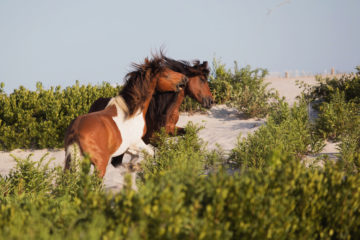 little or no reason. Dominant horses and cattle engage in this strange form of aggression as well, lunging at or biting other herd members who are quietly eating their food or dozing in the shade. Yet even though this behavior seems impulsive and abusive to everyone else, it provides a short-term reward that makes sense to overly dominant people and animals: Sudden unprovoked attacks keep everyone a bit on edge, causing others to look away or move away when the saucy cow, big bad bull, or flamboyant stallion struts through the herd. Dominants read this as “respect,” and they truly believe that others can be more easily controlled when herd members are kept off balance.
little or no reason. Dominant horses and cattle engage in this strange form of aggression as well, lunging at or biting other herd members who are quietly eating their food or dozing in the shade. Yet even though this behavior seems impulsive and abusive to everyone else, it provides a short-term reward that makes sense to overly dominant people and animals: Sudden unprovoked attacks keep everyone a bit on edge, causing others to look away or move away when the saucy cow, big bad bull, or flamboyant stallion struts through the herd. Dominants read this as “respect,” and they truly believe that others can be more easily controlled when herd members are kept off balance.
In a crisis, immature Dominants increase panic and decrease thoughtful problem-solving abilities. They can be especially disruptive in innovative settings where teams need to think clearly and creatively under pressure. People overemphasizing this role are prone to resist organizational change because reinforcing the status quo offers them more control. Dominant managers also express a “my way or the highway” attitude increasingly problematic in the 21st century: Talented, independent people are happy to “hit the road” when autocratic alphas rule the roost, especially when the Internet makes it easier to work from home and start a business online.
But just as nature relies on predators to keep life in balance, the Dominant role is useful when employed as a tool. Mature, well-balanced animals use dominance to break up fights between herd members, drive off predators, and drive herd members away from danger or toward a goal. Master Herder-style leaders use the Dominant role to moderate unproductive behavior in groups, direct people toward common goals, and get lazy or resistant employees back on track.
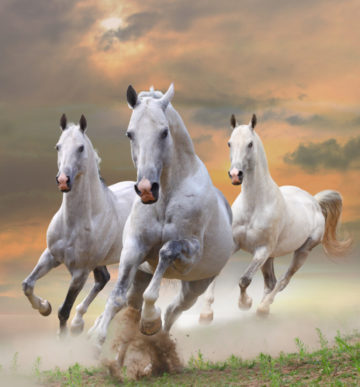 Those gifted in the Leader role, on the other hand, are attracted to novel situations. They tend to be innovative, inspirational, and charismatic. But they also show predictable dysfunctions. Visionary Leaders in particular tend to get too far out in front of others. When lacking Nurturer/Companion skills, these people become impatient with colleagues and employees who need more information or training to catch up. When Leaders lack the assertiveness associated with the Dominant role, they tend to become workaholics, because in their words: “it’s easier to do it myself.” They can also seem aloof and self-absorbed, especially when hyper-focused on the mission or goal.
Those gifted in the Leader role, on the other hand, are attracted to novel situations. They tend to be innovative, inspirational, and charismatic. But they also show predictable dysfunctions. Visionary Leaders in particular tend to get too far out in front of others. When lacking Nurturer/Companion skills, these people become impatient with colleagues and employees who need more information or training to catch up. When Leaders lack the assertiveness associated with the Dominant role, they tend to become workaholics, because in their words: “it’s easier to do it myself.” They can also seem aloof and self-absorbed, especially when hyper-focused on the mission or goal.
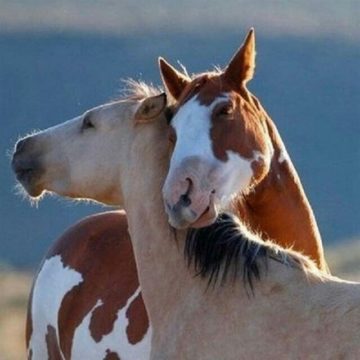
Those with solid Nurturer/Companion skills are great at making connections and gaining loyalty. They aren’t overtly aggressive, but they can create an incredibly toxic work environment when lacking skills associated with the other roles. As masters of passive-aggressive manipulation, these people act out anger and frustration in secretive yet increasingly virulent ways, making it hard for supervisors to catch difficulties in their earliest stages. If Nurturer/Companions feel wronged in some way, they don’t address the issue directly. They hold grudges and undermine people behind their backs. Eventually, they’ll pretty much refuse to communicate with the perceived offender, which can become quite a problem. Simply by giving one another the silent treatment, key staff members can make it hard for others to get their jobs done. Over time, factions are created with each side feeling undermined by the others.
Sentinels keenly observe social, procedural, and inter-departmental dynamics in relation to how the organization interacts with the environment,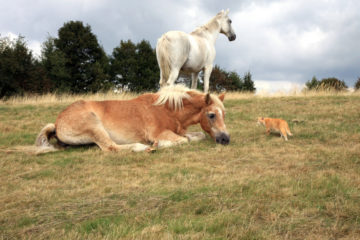 culture, and economy. But people who over-identify with this role can become exceedingly aloof and detached, mostly because they have to stand apart from the group to gain that perspective. When lacking in leadership and dominance skills, they can become hyper-vigilant and problem-focused without offering solutions or helping to intervene in conflict or create new policies and procedures. If you offend or devalue such a person, he or she is likely to withhold information and watch you struggle as a result, sometimes swooping in to benefit from your subsequent failure.
culture, and economy. But people who over-identify with this role can become exceedingly aloof and detached, mostly because they have to stand apart from the group to gain that perspective. When lacking in leadership and dominance skills, they can become hyper-vigilant and problem-focused without offering solutions or helping to intervene in conflict or create new policies and procedures. If you offend or devalue such a person, he or she is likely to withhold information and watch you struggle as a result, sometimes swooping in to benefit from your subsequent failure.
A Question of Overemphasis
It’s essential to realize that in most situations, a person acting out in any of these ways is not defective or innately ruthless; he or she is overemphasizing a role. Managers who employ the Master Herder model can take several steps to help people replace dysfunctional behaviors with more productive responses to various challenges. In this effort, a leader or executive coach will help individuals:
- Recognize the benefits of the role they are overemphasizing, and, perhaps more importantly, learn when and how to use these benefits consciously.
- Recognize the challenges and dysfunctional behaviors that arise from overemphasizing the role.
- Learn when and how to employ the strengths of the other roles to replace the dysfunctional behavior.
Gaining and maintaining a balance of the Master Herder roles, using them at the right time and right place, mitigates the dysfunctions that surface when a single role is overemphasized. If an entire group learns these skills, it becomes much harder for any individual member to manipulate, victimize, or take advantage of others.
But that’s just the beginning. As more people become proficient in these roles, increasing levels of intelligence, adaptability, power, collaboration, and creativity are unleashed, and the entire social system elevates. Star performers more effectively manage themselves, freeing leaders to engage in their own innovative pursuits. And when high achievers get promoted, they have the skills to support a socially intelligent workplace.
In learning how to be powerful together, we help each other scale the final barriers to success. Mastering this ancient wisdom allows modern tribes of mobile, innovative, and adaptable people to support each other through the inevitable droughts and doubts of life as we move ever more faithfully and confidently toward the mythical greener pastures of our own untapped potential.
Copyright 2017 by Linda Kohanov, based on her book The Five Roles of a Master Herder: A Revolutionary Model for Socially Intelligent Leadership, just released in paperback. https://www.amazon.com/Five-Roles-Master-Herder-Revolutionary/dp/1608685462/ref=sr_1_1?ie=UTF8&qid=1515653634&sr=8-1&keywords=5+roles+of+a+master+herder
Through one-day seminars and multi-day experiential workshops, Linda has taught this model throughout the U.S., Canada and Europe. Her clients include Nike, Raytheon, Chubb Insurance, Kaiser, and Best Friends Animal Society, as well as a number of credit unions, universities, non-profit organizations, entrepreneurs, leadership coaches, educators, counselors, and healthcare workers.
Upcoming experiential workshops include (see links for more information):
March 3 through 5: The Power of the Herd: Working with Eponaquest’s Horses to Master the Five Roles
March 23 through March 25: The Shepherd’s Task: Ancient Wisdom to Rejuvenate and Deeper Out Connection to Service, Faith, Spirit, Community, Compassion and Calling
April 21 through 24: Beyond Words: The Art and Science of Sentient Communication
For advanced students: There is one spot open in The Power of the Herd Advanced Intensive February 17 through 20.
Linda will also be offering indoor seminars and equine-facilitated experiential workshops in France and Holland in May, and Australia in September. More information on these events to come soon.